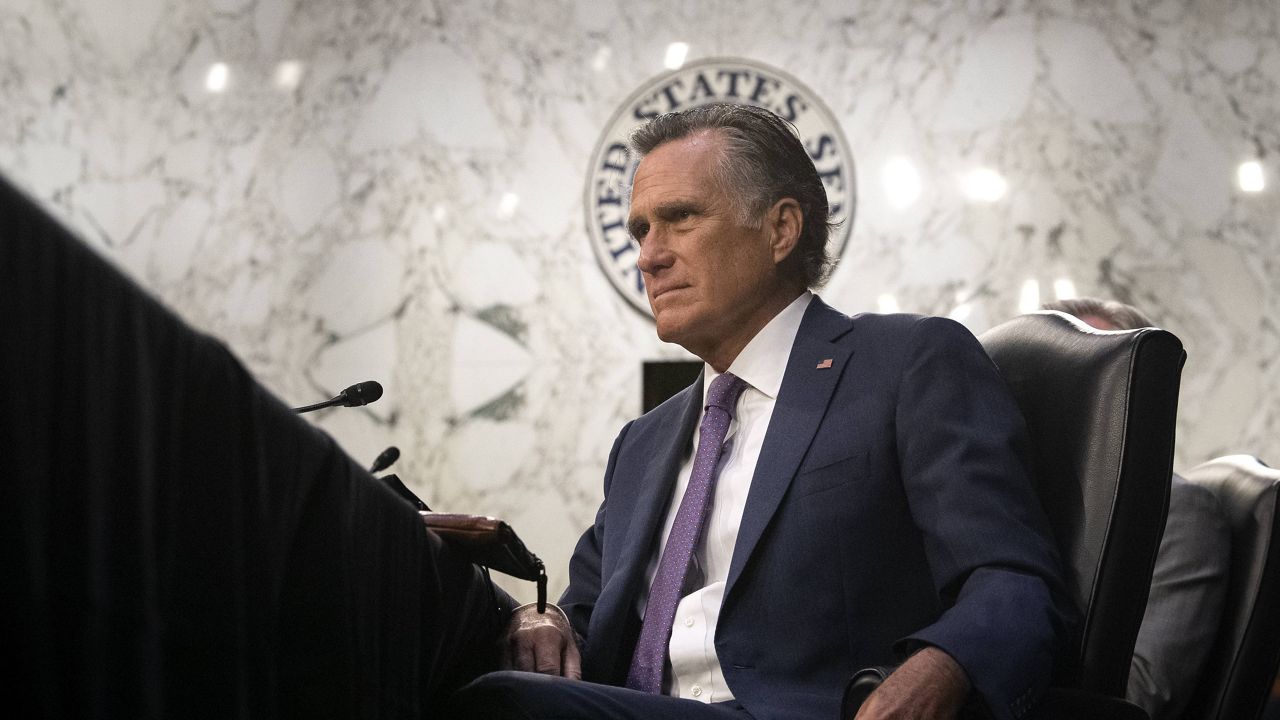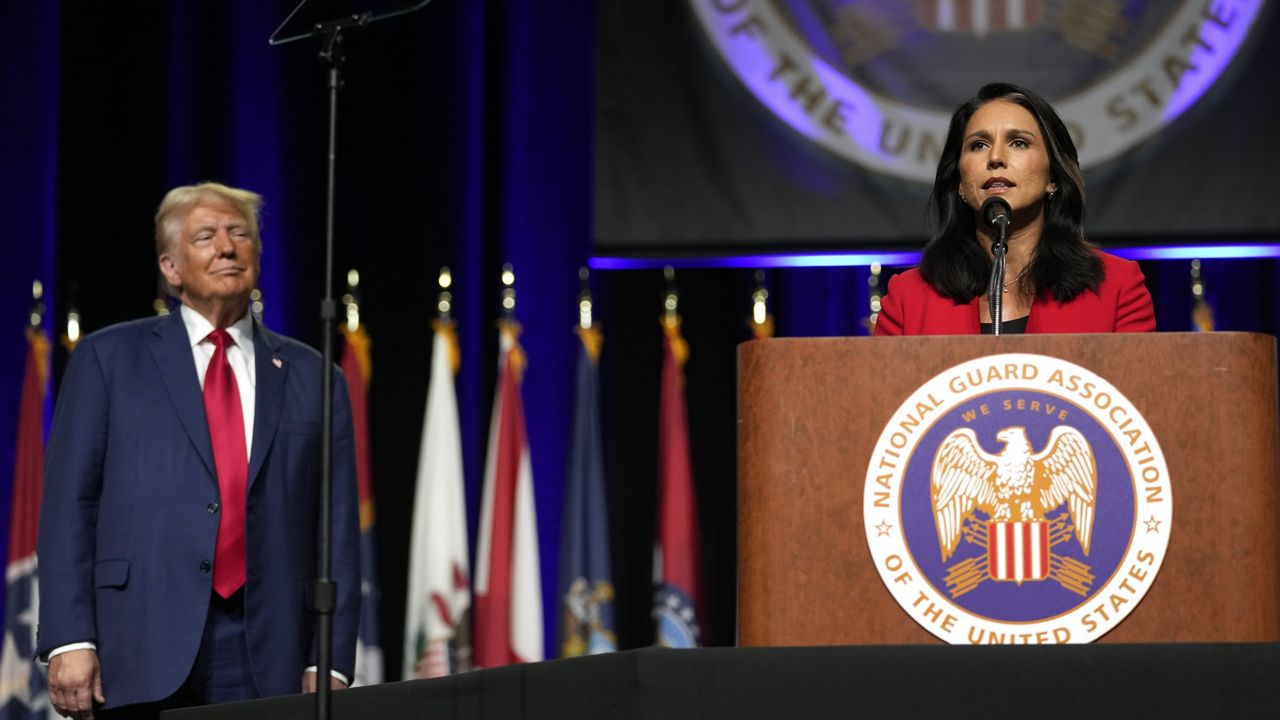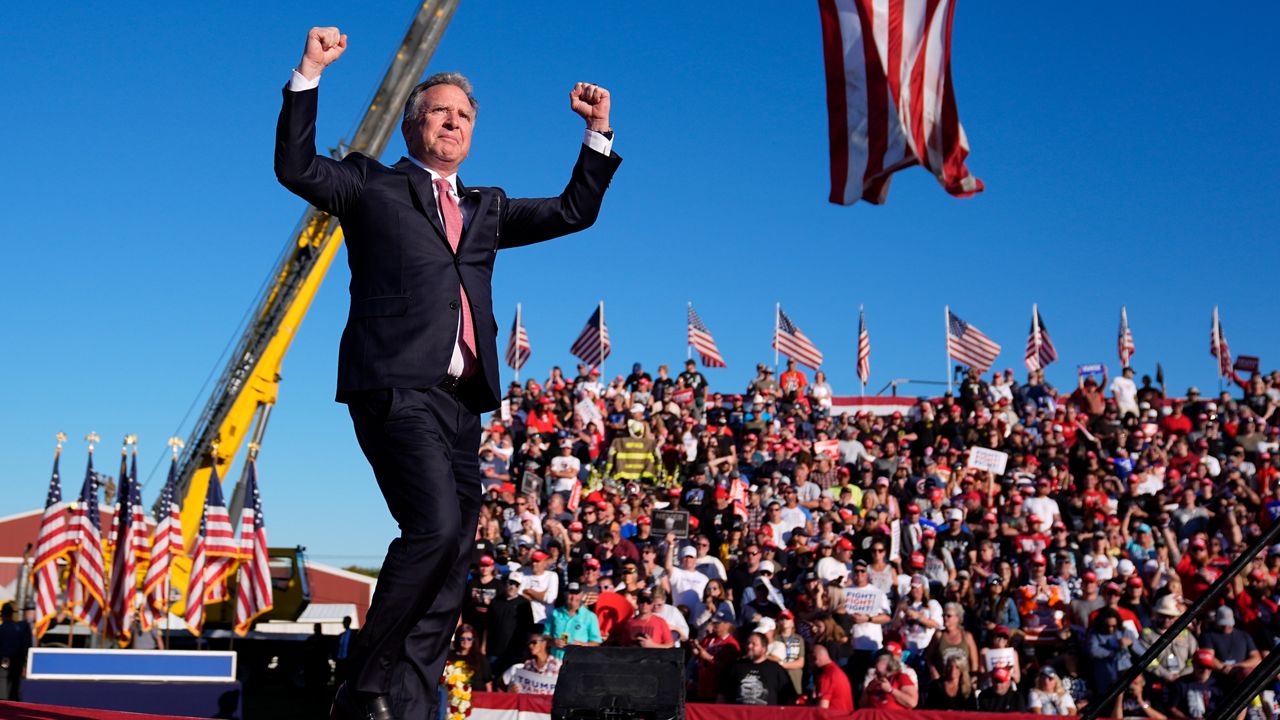Utah Sen. Mitt Romney has a message for his fellow Republicans and the donors that fund their campaigns: consolidate around one candidate early in the 2024 primaries to give the party a shot at avoiding nominating former President Donald Trump for a third time.
“Despite Donald Trump’s apparent inevitability, a baker’s dozen Republicans are hoping to become the party’s 2024 nominee for president. That is possible for any of them if the field narrows to a two-person race,” Romney wrote in a Wall Street Journal op-ed on Monday.
“For that to happen, Republican megadonors and influencers — large and small — are going to have to do something they didn’t do in 2016: get candidates they support to agree to withdraw if and when their paths to the nomination are effectively closed,” he added.
Ideally, Romney wrote, the field would narrow by Feb. 26, the Monday after the South Carolina primary. Along with South Carolina, the Iowa caucus and primaries in New Hampshire and Nevada will already have taken place.
“Left to their own inclinations, expect several of the contenders to stay in the race for a long time,” Romney warned. “They will split the non-Trump vote, giving him the prize. A plurality is all that is needed for winner-take-all primaries.”
Romney, who ran for president in 2008 and secured the GOP nomination in 2012, did not name his preferred candidate and has yet to endorse in a race with more than a dozen options. With his deadline still months away, other campaigns still have time to gain ground on Trump, but he holds commanding leads in both national and early state polling.
“The vast expansion of super PACs gives megadonors oversized influence on campaigns,” he wrote, noting some have already pledged tens of millions of dollars to the primary. “They have a responsibility to give their funds with clear eyes about their candidate’s prospects.”
“Donors who are backing someone with a slim chance of winning should seek a commitment from the candidate to drop out and endorse the person with the best chance of defeating Mr. Trump by Feb. 26,” the former Massachusetts governor added.
He cited the example of another Massachusetts governor, his father George Romney, who made a bid for the Republican nomination in 1968 against Richard Nixon. Other candidates in the race, including New York Gov. Nelson Rockefeller, “rallied around my father,” Romney wrote, in an attempt to keep Nixon from the White House.
Eventually the elder Romney dropped out and the anti-Nixon cohort backed Rockefeller. They were unsuccessful, but “they put common cause above personal incentives,” the younger Romney wrote in his op-ed.
“Such narrowing of the field doesn’t happen today,” the senator lamented.
Trump’s allies and supporters were quick to mock and belittle Romney, one of the last prominent GOP critics of Trump still serving in Washington. New York Rep. George Santos called him an “insipid sanctimonious schlub” and Matt Schlapp, a Trump White House alumnus who chairs the influential Conservative Political Action Committee, said the op-ed was “pathetic.” Jason Miller, a senior adviser to Trump, responded to Romney’s plea to donors with clown emojis on Twitter.
“As a mayor in Utah, I can not tell you the last time I saw Mitt Romney. He seems to serve one purpose in the Senate, and that is to spite Donald Trump,” wrote Trent Staggs, a mayor of a Salt Lake City suburb who launched a primary challenge against Romney. “He has allowed his personal vendetta to cloud him to a point that he can no longer even represent his constituents.”
After courting his endorsement in 2012 and earning it again in his 2018 Senate run, Romney turned on his party’s leader and voted to convict Trump in both of the former president’s impeachments, becoming the first senator to vote to remove a president of his own party.
In his op-ed, Romney warned “no-hope candidates” to avoid the temptations of the status earned even as a loser in a presidential primary.
“Coming in behind first place may grease another run in four years or have market value of its own: Mike Huckabee and Rick Santorum got paying gigs,” wrote Romney, referring to the former Arkansas governor and Pennsylvania senator who ran in 2012 and subsequently landed cushy cable news gigs. “And as former New Hampshire Gov. John H. Sununu has observed, ‘It is fun running for president if you know you cannot win.’”
Addressing the donors, he implored them to use their vast fortunes to fund the strongest campaign and force others out of the race. The desires of party officials won’t convince anyone “because voters don’t listen to them either.” And campaign staff and consultants will encourage their bosses to stay in the race to preserve their jobs.
“They buck up candidates, promoting long-shot prospects and favorably biased internal polls,” Romney wrote. “I can almost hear the words from ‘Dumb and Dumber’ — ‘So you’re telling me there’s a chance?’”








)